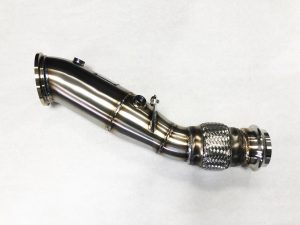Competitive Intelligence as a Competitive Advantage in Manufacturing

Introduction
Manufacturing companies operate in a landscape defined by global supply chains, technological advancements, cost pressures, and shifting customer expectations. In this environment, maintaining a competitive edge requires more than just operational efficiency—it demands strategic foresight. Competitive intelligence offers manufacturers a powerful advantage by providing actionable insights into competitor capabilities, market trends, and industry innovations. When used effectively, competitive intelligence becomes a core pillar of long-term success in the manufacturing sector.
Why Competitive Intelligence Matters in Manufacturing
Manufacturing is highly capital-intensive and margin-sensitive. Decisions related to raw materials, production methods, technology upgrades, and expansion must be informed and timely. Competitive intelligence equips manufacturers with the external insights necessary to navigate these complexities.
By leveraging competitive intelligence, manufacturers can benchmark performance, anticipate competitive moves, optimize pricing, and align production with market demand. This improves both strategic agility and operational performance.
Benchmarking Operational Efficiency and Process Innovation
One of the most direct applications of competitive intelligence in manufacturing is performance benchmarking. By analyzing how competitors structure their operations—factory locations, automation levels, supplier relationships—competitive intelligence reveals areas for process improvement.
If competitors are adopting smart manufacturing technologies or lean production systems, competitive intelligence ensures those shifts are detected early. Manufacturers can then assess whether to implement similar innovations or develop alternative efficiencies to stay ahead.
Supply Chain and Procurement Intelligence
Manufacturers are especially vulnerable to supply chain disruptions. Competitive intelligence helps monitor how competitors manage suppliers, source raw materials, and respond to shortages. This information is critical for identifying supply chain risks, spotting sourcing trends, and evaluating new procurement partners.
With competitive intelligence, manufacturers can strengthen their supplier networks, reduce costs, and build resilience against global disruptions. It also supports smarter inventory decisions based on competitor demand cycles and seasonal adjustments.
Product Development and Technology Tracking
Innovation in materials, product features, and manufacturing technologies can rapidly alter competitive dynamics. Competitive intelligence provides visibility into emerging technologies, R&D efforts, and product roadmaps across the industry.
By studying patent filings, engineering publications, and trade shows, competitive intelligence enables manufacturers to track where competitors are investing. This insight helps prioritize internal innovation efforts and ensures product development aligns with future market demands.
Pricing and Cost Structure Insights
Price wars and shrinking margins are common in manufacturing. Competitive intelligence uncovers competitor pricing models, cost-saving measures, and value-added services. This allows manufacturers to evaluate their own pricing strategies and identify areas where value can be added without sacrificing profit.
Using competitive intelligence, companies can structure their offerings to highlight competitive advantages—such as faster delivery, longer warranties, or customization capabilities.
Monitoring Global Expansion and Market Entry
Manufacturers often compete across borders. Competitive intelligence helps track competitor expansion plans, new plant openings, and joint ventures. These insights inform decisions about global site selection, partnerships, and localization strategies.
If competitive intelligence reveals a rival entering a new region or market, manufacturers can respond by accelerating their own entry or fortifying their existing position.
Empowering Sales and Marketing with Competitor Insights
Even in manufacturing, sales and marketing teams benefit from competitive intelligence. Knowing a competitor’s strengths, weaknesses, and pricing allows for more effective pitches, better customer targeting, and stronger negotiations.
Providing front-line teams with updated competitive intelligence improves win rates and helps reinforce market share, especially in sectors where customer loyalty is heavily influenced by service and technical support.
Conclusion
In manufacturing, competitive advantage is not just built on machines and materials—it’s built on insight. Competitive intelligence empowers manufacturers to stay ahead of market changes, benchmark performance, out-innovate competitors, and respond with strategic precision. Whether it’s optimizing operations or launching a new product line, competitive intelligence ensures decisions are proactive and aligned with the competitive landscape. For manufacturers looking to lead—not just compete—competitive intelligence is a must-have strategic tool.




